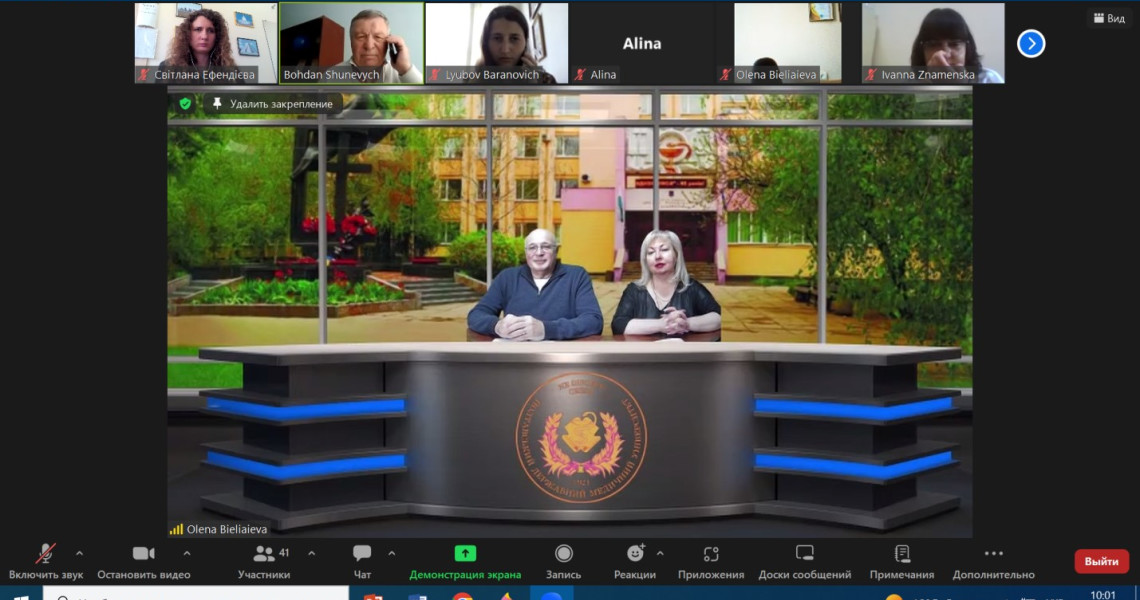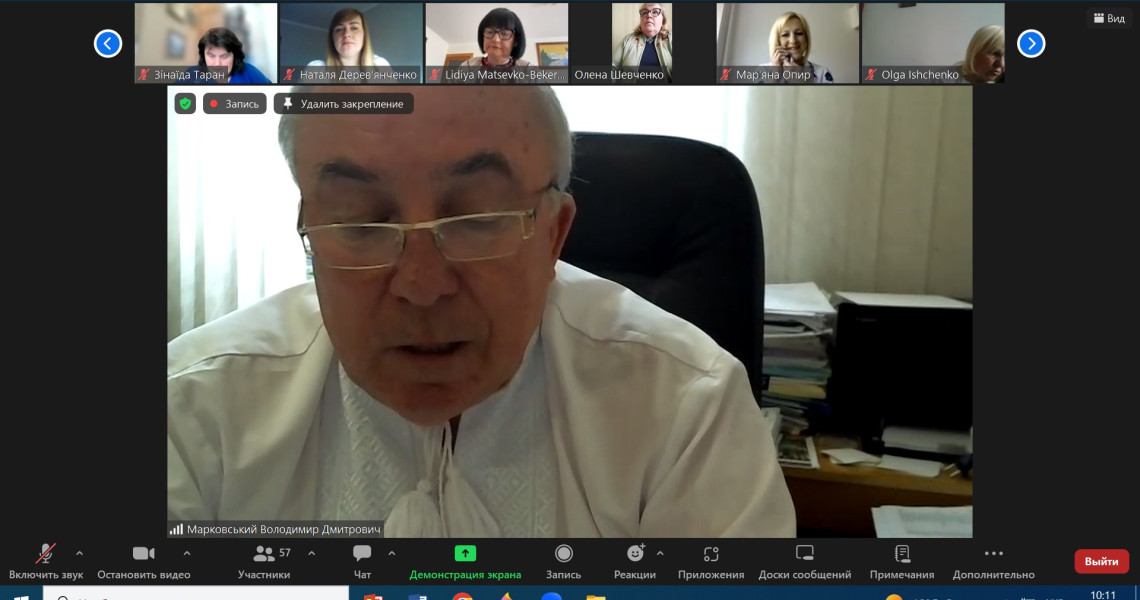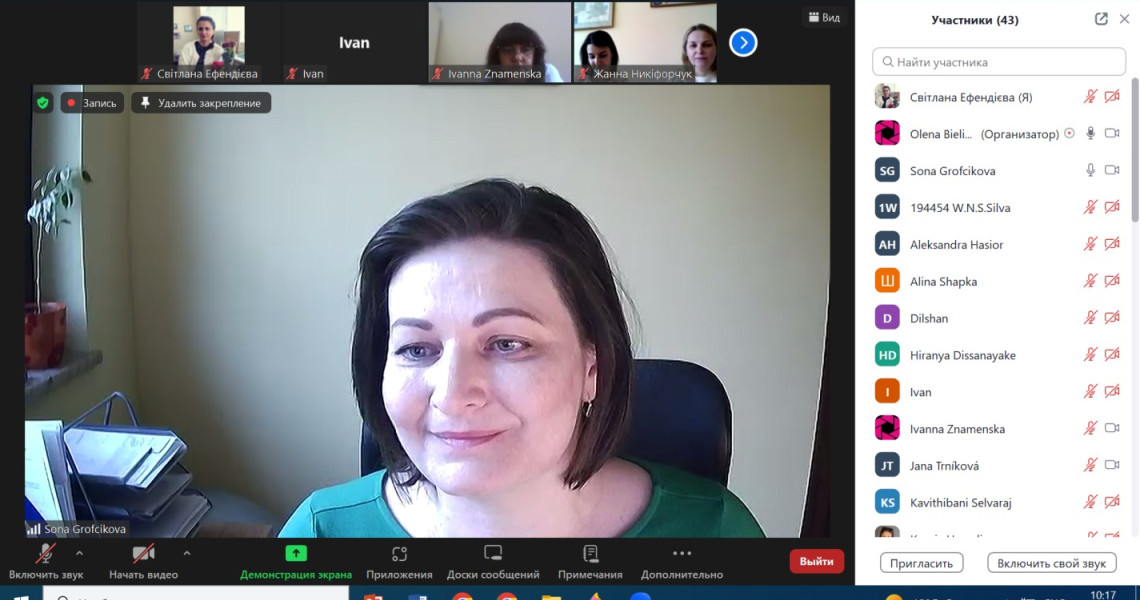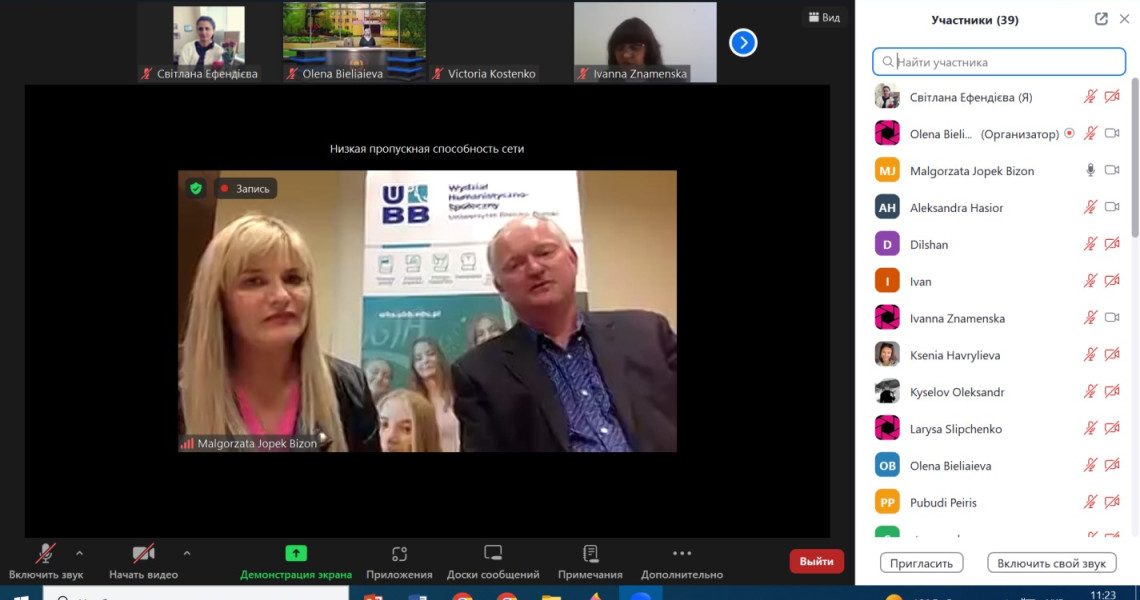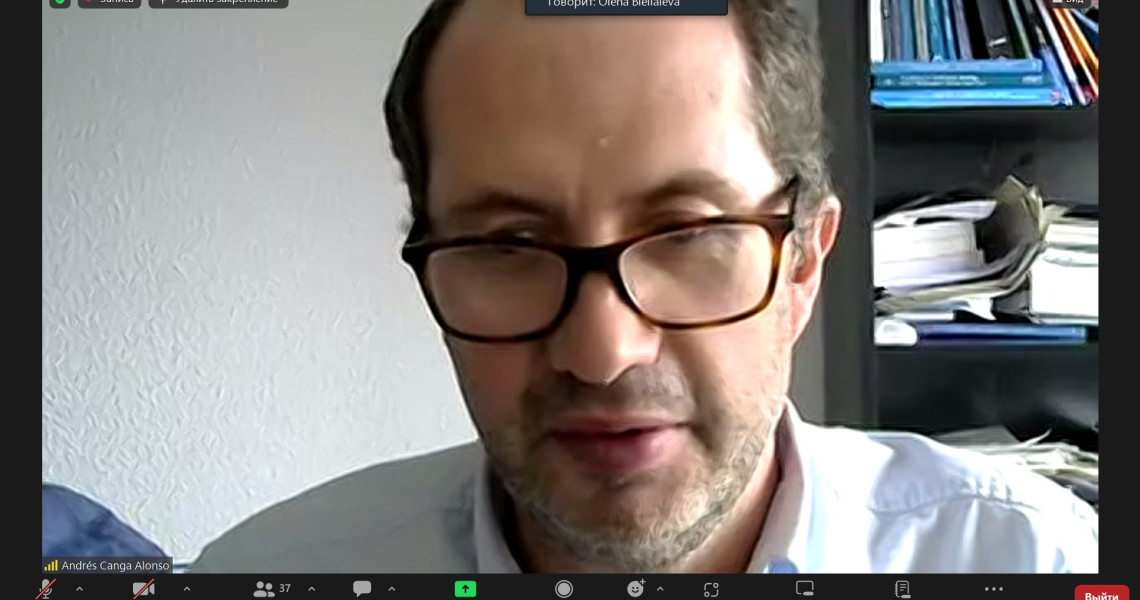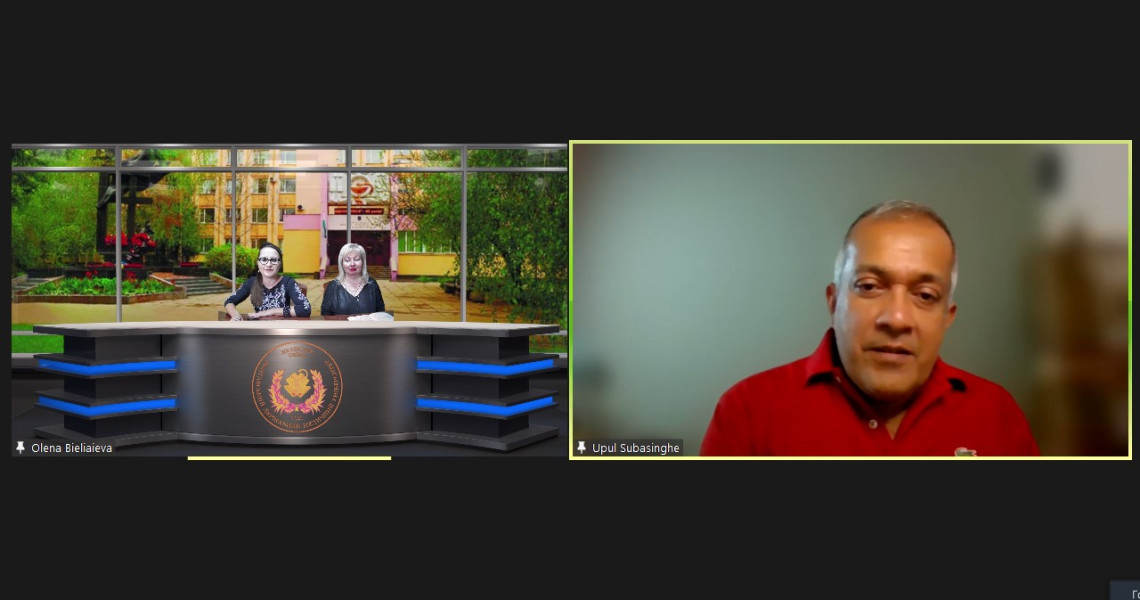On May 16 and 17, 2024, the third III International Scientific and Practical Online Conference "Modern Trends in Foreign Languages Research and Teaching" was held at Poltava State Medical University.
This extraordinary event brought together scientists from Ukraine, Great Britain, Spain, Poland, Romania, Slovakia and Sri Lanka. On behalf of PSMU Rector Zhdan Viacheslav Mykolayovych, Vice-Rector for Research, Doctor of Medical Sciences, Professor Igor Petrovych Kaidashev delivered a welcoming speech, emphasizing the importance of further integration into the European Education Area by establishing new and strengthening already established scientific ties with foreign partners. Special attention in the welcoming speech was paid to the need to implement the UN Sustainable Development Goals (SDGs). During two days of extremely fruitful work, the conference participants were greeted by Dr. Luminita Popescu – State Secretary, National Agency for Equal Opportunities between Women and Men, Romanian Government, Bucharest, Romania; Dr. Ramona Mihăilă – Head of the Secretary of State's Office, National Agency for Equal Opportunities between Women and Men, Romanian Government, Dimitrie Cantemir Christian University, Bucharest, Romania; Assoc. Prof. Andrés Canga Alonso – Doctor of Philosophy, Associate Professor, Head of the Department of Modern Philologies, University of La Rioja, Logroño, Spain; Prof. Ernest Zawada – Dean of the Faculty of the Humanities and Social Sciences, Uniwersytet Bielsko-Bialski, Poland; Prof. Soňa Grofčíková – Head of Department of Education, Faculty of Education, Constantine the Philosopher University in Nitra, Slovakia; Dr. Anuradha Iddagoda, representative of the University of Sri Jayawardenepura (Democratic Republic of Sri Lanka); Professor Volodymyr Markovskyi, Vice-Rector for Scientific and Pedagogical Work of Kharkiv National Medical University; Associate Professor Maria Hutsol, Deputy Rector for Educational Work of Ivano-Frankivsk National Medical University.
Also, other honored guests and co-organizers of the conference, representing powerful national higher education institutions, such as Ivan Franko National University of Lviv (Head of the Department of World Literature, Professor Lidia Matsevko-Bekerska), Bukovinian State Medical University (Head of the Department of Foreign Languages, Associate Professor Oleksandr Rak), Vinnytsia National Pirogov Memorial Medical University (Head of the Department of Latin Language and Medical Terminology, Associate Professor Sofiia Tikholaz), Lviv National Environmental University (Head of the Department of Foreign Languages, Associate Professor Nataliia Gorodetska and Professor Bohdan Shunevych), Kharkiv National Medical University (Head of the Department of Latin and Medical Terminology, Associate Professor Natalia Derevianchenko) etc.
A total of 82 papers were submitted, 17 of which were from foreign partners. It is important that this conference went beyond the narrow confines of linguistic and linguodidactic research, as the guests presented reports that covered many acute and pressing issues of our time, such as prioritizing scientific discovery, academic integrity and bioethics; self-plagiarism as a challenge to ethical standards; developing language and speech competencies under martial law; prospects for using educational materials of massive open online course platforms by graduate students (on the example of construction specialties); maintaining the mental health of the educational process; using immersive learning methods; actualization of the professional language competence of foreign students in the process of learning Latin clinical terminology; opportunities for learning legal terms in the process of teaching students (on the example of the Czech language); case study of mastering the LSP language (university level); syntactic templates of headlines in printed commercial advertisements promoting dental products (target audience ‒ dental professionals), etc.
Some highlights and innovations were also presented, namely, the scientific achievements of not only academics, but also students of Poltava State Medical University (O. Polishchuk), Kharkiv National Medical University (D. Maslennikov) and Lviv National Environmental University (L. Baranovych). The future scientists not only demonstrated their lecturing skills but also the proper scientific level.
A series of lectures given by guest lecturers on May 16 and 17 was an absolute innovation of the conference: 1) Nature-based land management practices for watershed and riparian zone conservation (guest lecture ‒ Prof. Upul Subasinghe, the Dean of the Faculty of Applied Sciences, University of Sri Jayewardenepura (Sri Lanka); 2) Linguistic Challenges in Policies on Combating Domestic Violence (guest lecture ‒ Luminita Popescu, Doctor of Philosophy, State Secretary, National Agency for Equal Opportunities between Women and Men, Romanian Government, Bucharest, Romania); 3) Bridging Language Learning and Digital Technology: Insights from a CLIL Education Survey (guest lecture ‒ Dr. Onorina Botezat, Associate Professor of the Department of Modern Languages and Business Communication, Bucharest University of Economic Studies, Romania); 4) Reshaped Language on Diverse Gendered Placemaking (guest lecture ‒ Ramona Mihăilă, Doctor of Philosophy, Head of the Secretary of State's Office, National Agency for Equal Opportunities between Women and Men, Romanian Government, Dimitrie Cantemir Christian University, Bucharest, Romania); 5) Educational leadership: an old concept in a new reality (guest lecture ‒ Prof. Lilia Morska, Institute of Pedagogy of Rzeszów University, Rzeszów, Poland); 6) Are plurilingual and intercultural competences important for university students nowadays? (guest lectures ‒ Soňa Grofčíková, Jana Trníková, Constantine the Philosopher University in Nitra, Slovakia); 7) Sine qua non of lexicographic description of English medical terminology (guest lecture ‒ Olena Gordiienko, DSc (Germanic Languages), Zaporizhzhia State Medical and Pharmaceutical University, Zaporizhzhia, Ukraine; Visiting Scholar, Department of Linguistics, Department of German and Slavic Studies, Faculty of Arts, University of Manitoba, Winnipeg, MB, Canada); 8) Fostering future kindergarten and early-childhood teachers‘ competence in teaching a foreign language – theoretical considerations around content and language integrated learning and executive functions (guest lecture ‒ Dr. Małgorzata Jopek-Bizoń, Faculty of Humanities and Social Sciences, University of Bielsko-Biała, Poland).
It is important that the lectures of the invited foreign lecturers were attended by students of Poltava State Medical University and the University of Sri Jayawardenepura (Sri Lanka).
Summarizing the results of this scientific forum, it should be emphasized that the efforts of the organizers and participants were successfully and effectively aimed at solving many scientific problems, as well as at implementing the SDGs: ensuring inclusive and equitable quality education for all and promoting lifelong learning (SDG 4), ensuring gender equality (SDG 5) and intensifying activities within the Global Partnership for Sustainable Development (SDG 17).
The organizers are sincerely grateful to all the participants for their activity! We are looking forward to the next IV International Scientific and Practical Conference "Modern Trends in Foreign Languages Research and Teaching" and hope that this conference will be held in a mixed (face-to-face and distance) or in-person format and Poltava will be able to demonstrate its hospitality!






